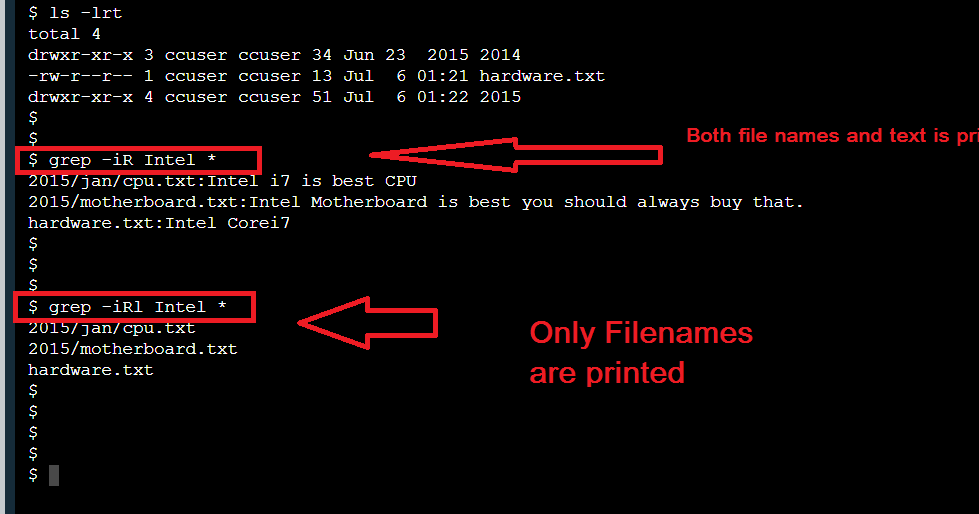Grep All Files In A Directory
Do you want to find all files that contain a particular word or string of text on your entire Linux system or a given directory. This article will guide you on how to do that, you will learn how to recursively dig through directories to find and list all files that contain a given string of text.
A simple way to work this out is by using grep pattern searching tool, is a powerful, efficient, reliable and most popular command-line utility for finding patterns and words from files or directories on Unix-like systems.
Grep -r -e string directory -r is for recursive; -e is optional but its argument specifies the regex to search for. Interestingly, POSIX grep is not required to support -r (or -R), but I'm practically certain that System V grep did, so in practice they (almost) all do. You can search all text files in the current directory with wild cards: grep 'word-to-search'. Pass the -r option to grep command to search recursively through an entire directory tree. With this option one can search the current directory and and all levels of subdirectories by passing the -r or -R to the grep command.
Read Also: 11 Advanced Linux ‘Grep’ Commands on Character Classes and Bracket Expressions
The command below will list all files containing a line with the text “check_root”, by recursively and aggressively searching the ~/bin directory.
Where the -R option tells grep to read all files under each directory, recursively, following symbolic links only if they are on the command line and option -w instructs it to select only those lines containing matches that form whole words, and -e is used to specify the string (pattern) to be searched.
You should use the sudo command when searching certain directories or files that require root permissions (unless you are managing your system with the root account).
To ignore case distinctions employ the -i option as shown:
If you want to know the exact line where the string of text exist, include the -n option.
Find String with Line Number
Assuming there are several types of files in a directory you wish to search in, you can also specify the type of files to be searched for instance, by their extension using the --include option.
This example instructs grep to only look through all .sh files.
Kidung wahyu kolosebo arti dalam bahasa indonesia. In addition, it is possible to search for more than one pattern, using the following command.
That’s It! If you know any other command-line trick to find string or word in files, do share with us or ask any questions regarding this topic, use the comment form below.
Grep All Files In Directory Mac
I tried to recursively search a pattern in all the .c files in the following way
But got this as the output
When I use this:
I get plenty of . c files in the directories with the pattern.
What is wrong with the earlier expression?
Jay Jay
Jay2 Answers
enzotibenzotibThe *.c pattern is evaluated by your shell. It applies to the current directory, just like you would using ls *.c.
I think what you want instead is to find all files matching the *.c pattern (recursively) and have grep search for you in it. Here's a way to do that:
It uses xargs to append the search results by find.
Alternatively, use the -exec option to find, e.g.:
Also, I'm not sure if you really want the -l option to grep. It will stop at the first match: